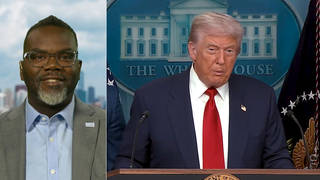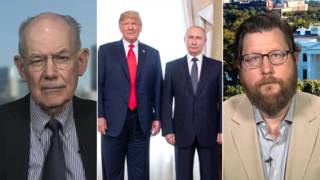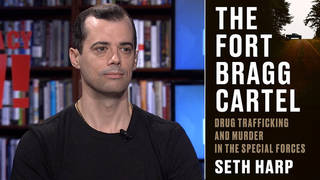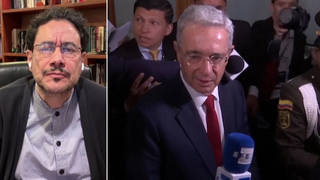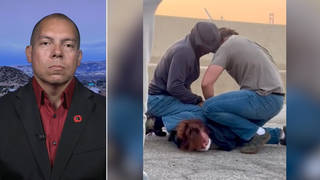
Pacifica Radio, the oldest independent media network in the United States, turns 60 years old this week as a deepening crisis engulfs mainstream media. Journalists are being laid off by the hundreds, even thousands. Venerable newspapers, some more than a century old, are being abruptly shuttered. Digital technology is changing the rules, disrupting whole industries, and blending and upending traditional roles of writer, filmmaker, publisher, consumer. Commercial media are losing audience and advertising. People are exploring new models for media, including nonprofit journalism.
Pacifica Radio was founded by Lew Hill, a pacifist who refused to fight in World War II. When he came out of a detention camp after the war, he said the United States needed a media outlet that wasn’t run by corporations profiting from war. Instead, he said, it needed a one run by journalists and artists—not by “corporations with nothing to tell and everything to sell that are raising our children today,” in the words of the late George Gerbner, one-time dean of the Annenberg School for Communication at the University of Pennsylvania. KPFA, the first Pacifica station, began in Berkeley, Calif., on April 15, 1949. FM radio was in its infancy at the time, so KPFA had to make and give out FM radios in order for people to hear the station. Pacifica Radio tried something no one thought would work: building a network based on the voluntary financial support of individual listeners, a model later adopted by National Public Radio and public television.
The Pacifica network grew to five stations: KPFA in Berkeley, KPFK in Los Angeles, WBAI in New York, WPFW in Washington and KPFT in Houston.
In 1970, in its first months of operation, KPFT became the only radio station in the United States whose transmitter was blown up. The Ku Klux Klan did it. The KKK’s grand wizard described the bombing as his proudest act. I think it was because he understood how dangerous Pacifica was, as it allowed people to speak for themselves. When you hear someone speaking from his or her own experience—a Palestinian child, an Israeli mother, a grandfather from Afghanistan—it breaks down stereotypes that fuel the hate groups that divide society. The media can build bridges between communities, rather than advocating the bombing of bridges.
Pacifica is a sanctuary for dissent. In the 1950s, when the legendary singer and African-American leader Paul Robeson was “whitelisted” during Sen. Joseph McCarthy’s witch hunts, banned from almost every public space in the United States but for a few black churches, he knew he could go to KPFA and be heard. The great writer James Baldwin, debating Malcolm X about the effectiveness of nonviolent sit-ins in the South, broadcast over the airwaves of WBAI. I got my start in broadcast journalism in the newsroom of WBAI. Today, the Pacifica tradition is needed more than ever.
In this high-tech digital age, with high-definition television and digital radio, all we get is more static: that veil of distortions, lies, misrepresentations and half-truths that obscures reality. What we need the media to give us is the dictionary definition of static: criticism, opposition, unwanted interference. We need a media that covers power, not covers for power. We need a media that is the fourth estate, not for the state. We need a media that covers the movements that create static and make history.
With more channels than ever, the lack of any diversity of opinion is breathtaking. Freedom of the press is enshrined in the Constitution, yet our media largely act as a megaphone for those in power. As we confront unprecedented crises—from global warming to global warring to a global economic meltdown—there is also an unprecedented opportunity for change.
Where will innovative thinkers, grass-roots activists, human-rights leaders and ordinary citizens come together to hash out solutions to today’s most pressing problems?
For example, while there are many people in this country—in the peace movement as well as in the military—who oppose the “surge” in Afghanistan, as they did in Iraq, we see and hear virtually none of these dissenting voices in the U.S. media. While some polls indicate that a majority of Americans support single-payer health care, these voices are essentially ignored or disparaged in the newspapers and network-news programs.
While traveling the country, I was asked the other day what I thought about the mainstream media. I said I thought it would be a good idea. On this 60th anniversary of the Pacifica Radio Network, we should celebrate the tradition of dissent and the power of diverse voices to resolve conflict peacefully.

